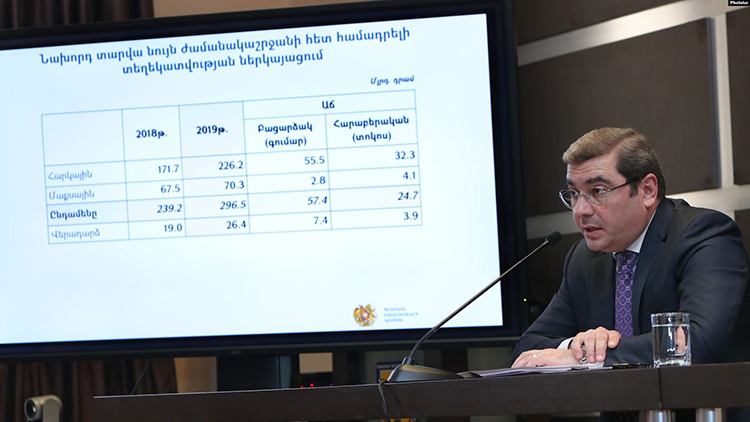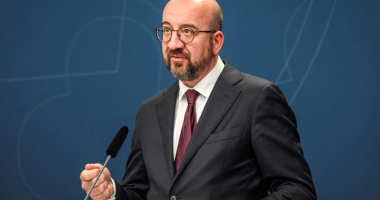YEREVAN — The Armenian government on Monday reported a more than 16 percent rise in its tax revenues in 2019 and said it will increase them further this year.
The head of the State Revenue Committee (SRC), Davit Ananyan, said the tax and customs services collected just over 1.5 trillion drams ($3.2 billion) in various taxes.
The figure exceeds the SRC’s 2019 tax revenue target by 62.4 billion drams. It includes about 43 billion drams in value-added tax refunds paid back to exporters.
Ananyan primarily attributed the sizable increase to the SRC’s continued efforts to improve tax administration and combat tax evasion. The government agency “helped taxpayers declare their revenues in full,” he told a news conference.
One of Ananyan’s deputies, Eduard Hovannisian, revealed last month that the total amount of underreported corporate revenues detected by the SRC nearly doubled in January-November 2019. The SRC is now conducting 330 criminal investigations into other instances of suspected tax fraud, he said.
Continued economic growth in Armenia, which was on course to accelerate to more than 7 percent in 2019, also contributed to the higher tax revenues.
The SRC was further helped by the fact that car imports to the country tripled last year, resulting in 95 billion drams in customs and value-added taxes.
The Eurasian Economic Union (EEU) granted Armenia five-year exemptions from its higher import duties on cars and other goods when the South Caucasus country joined the Russian-led trade bloc in 2015. This meant that up until this year second-hand cars there cost considerably less than in Russia, Kazakhstan or other EEU member states.
Citizens of those states were able to buy them in Armenia and take them to their countries without paying any taxes. They were or will be the principal buyers of some 190,000 cars that were imported to Armenia in 2019. The end of the EEU’s tax privilege means that the lucrative cars imports will likely fall significantly this year.
The Armenian government’s tax revenues are projected to reach almost 1.7 trillion drams (US$3.6bn) in 2020. Ananyan expressed confidence that the SRC will meet this target as well.










